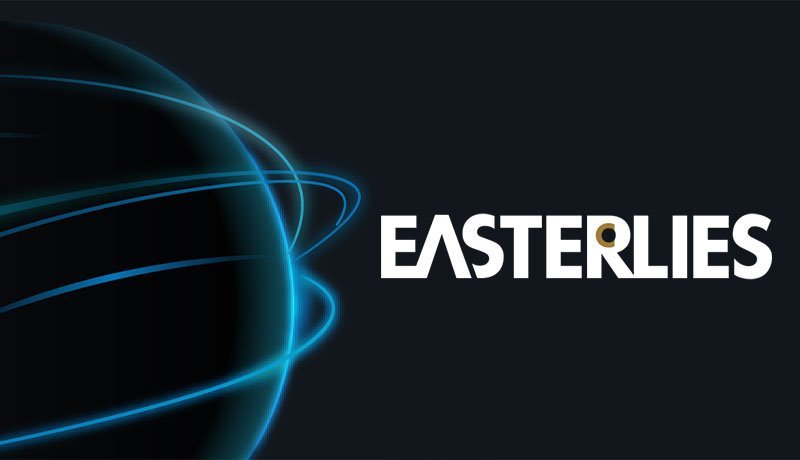"Easterlies" refers to winds that blow from east to west. In this Easterlies series of articles, we handpick unique perspectives from literature on management and leadership from both the West and the East and curate them into easily digestible, three-minute articles that bring you inspiration on these important topics.
Characteristics of a Leader with High Emotional Intelligence (EQ)

April 18, 2025

Since the 1980s, the transition from an industrial economy to an information-based economy has brought significant changes to organizations and management. Along with this shift, our view of people within organizations has also evolved. In the past, individuals were seen as replaceable workers--interchangeable parts of a machine. Today, they are recognized as individuals with their own intentions and actions.
This shift has led to a growing emphasis not only on technical skills and knowledge but also on people's attitudes, inner qualities, and emotional intelligence (EQ). In this article, we explore how leaders can enhance their EQ to become more effective in their roles.
What is Emotional Intelligence (EQ)?
In 1990, psychologists Peter Salovey and John Mayer defined Emotional Intelligence (EQ) as the ability to understand and manage one's own emotions, as well as the ability to recognize and empathize with the emotions of others. Later, Daniel Goleman's bestselling book Emotional Intelligence helped bring the concept into the mainstream.
Goleman outlined four key components of EQ: self-awareness, self-management, social awareness, and relationship management (*1). These are essential for leaders to guide their teams effectively, build trust, and navigate stressful situations with composure. According to research by Harvard University's National Bureau of Economic Research (NBER), EQ is even more predictive of team success than general IQ (*2).
The Misconception: "High EQ = Good Person"
However, Goleman warns of a common misconception about EQ. In an article in the Harvard Business Review, he points out that one of the most persistent misunderstandings is the idea that "emotional intelligence = being a good person" (*3). This often stems from placing too much emphasis on the ability to understand and empathize with others' emotions.
What happens when people begin to believe that "high EQ = good person"?
One example from the article describes a CEO who was so focused on understanding others' emotions that he avoided conflict and tried to be a "good person." As a result, he allowed underperforming employees to remain in the organization, which led to frustration among more motivated team members. By suppressing his own feelings and avoiding necessary conversations, he unintentionally created larger problems.
The Cost of Being a "Good Person"
When leaders try too hard to play the role of the "good person" and avoid expressing their true thoughts for the sake of harmony, what happens? Team members may miss out on valuable feedback about their behavior and performance, which can reduce their motivation to grow. Over time, this weakens accountability, decreases productivity, and lowers overall performance.
The desire to be "liked" or "not disliked" is a natural human instinct--we're social creatures who thrive on connection. However, as we saw in the earlier example, when leaders overly focus on being "good" to avoid conflict, it can have a negative impact on the organization.
Focusing on Your Own Needs, Emotions, and Values
Let's return to the definition of EQ. It includes two key abilities: understanding and managing your own emotions, and understanding and empathizing with others' emotions. Having high EQ doesn't mean excelling at just one of these--it requires both.
A high-EQ leader must balance awareness of their own emotions with empathy for others. In the earlier example, the CEO was too focused on others' feelings and overlooked his own--such as fear of being disliked or fear of losing his position. Recognizing and addressing these internal emotions is essential.
Respecting others' feelings is not the same as suppressing your own. A truly emotionally intelligent leader is aware of their own emotions, needs, values, and beliefs--and can act in alignment with them, even when delivering difficult feedback. By balancing empathy for others with a clear sense of self, leaders can build trust and lead more effectively.
- What kind of leader do you want to be--and what or who do you want to lead for?
- To become that kind of leader, what personal challenges or emotions do you need to face?
【REFERENCE】
*1 Goleman, D. (1995). Emotional Intelligence: Why It Can Matter More Than IQ. New York: Bantam Books. [Japanese translation: ダニエル・ゴールマン(著)、土屋京子(翻訳)、『EQ: こころの知能指数』、講談社、1996年
*2 Ben Weidmann and David J. Deming, “TEAM PLAYERS: HOW SOCIAL SKILLS IMPROVE GROUP PERFORMANCE”, NATIONAL BUREAU OF ECONOMIC RESEARCH, 2020
*3 Daniel Goleman, “What People (Still) Get Wrong About Emotional Intelligence”, Harvard Business Review, December 22, 2020
Language: Japanese
*Regardless of profit, non-profit or intranet, secondary use such as copying, diversion, selling etc. is prohibited without permission.
